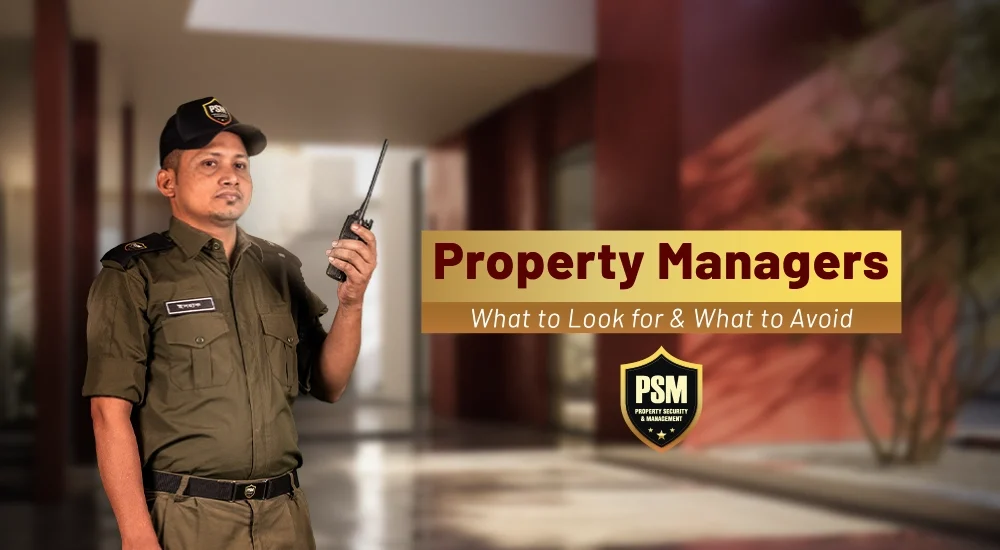- April 16, 2025
- Posted by: Mrinmoy Ghosh
- Category: Tips

Whether you’re managing one unit or a rental portfolio, the proper Property Manager can be a game-saver. A professional property manager handles everything from tenant screening and rent collection to maintenance and legal matters, so your investment is passive. But not all professionals are equal. Having an idea of what to look for—and what to avoid—can save you time, money, and stress.
In this blog, we will make choosing a property manager transparent so that you can make an educated decision.
Why Hire a Property Manager?
Let’s begin by defining the job. A property manager acts on behalf of a property owner to handle and coordinate the day-to-day operations of rental properties. Some of their duties may be:
- Finding and screening tenants
- Gathering rent
- Keeping and repairing properties
- Handling budgets
- Keeping legal requirements
- Handling tenant disputes and evictions
Whether living abroad, too busy, or just want a more hands-off approach, property management provides you with peace of mind and professional management of your investment.
What to Look for in a Property Manager
Experience and Local Market Knowledge
A proper property manager should have good experience, particularly in your property location. They must know the local rental market, the laws, and what your local tenants want.
Tips: Ask how many properties they manage currently in your area and how long they have been operating.
Strong Communication Skills
Clear, timely communication is key. You desire a manager who can effectively communicate between you and your tenants, keep you informed of important developments, and respond to emergencies or inquiries without delay.
Look for: A professional who sets clear expectations for how often to report and what tools or methods to use to communicate with them.
Transparency in Fees and Contracts
A good property manager will provide an open breakdown of their fees. Common fees are a monthly management fee, a tenant placement fee, and markups on maintenance.
Red flag: Unnamed fees, vague language, or refusal to provide a written contract.
Effective Tenant Screening Process
Good tenants can make or break your rental experience. Ask them what process they use to screen tenants—credit checks, background checks, rental history, employment verification, etc.
A good property management company will put a high value on obtaining reliable, long-term tenants to minimize turnover and preserve your investment.
Maintenance and Vendor Network
Regular and emergency repairs are an important part of rental property maintenance. A good manager should have an arsenal of licensed, reliable vendors to repair things quickly and at a reasonable cost.
Tips: Ask if they pass vendor discounts on to customers or charge a markup.
Tech-Savvy Systems
The majority of professional property managers use web-based systems for rent collection, maintenance requests, and financial reporting. This makes it easier for owners and renters.
Look for: Internet portals, auto-payments, electronic reporting, and a 24/7 view of your property’s performance.
Legal & Regulatory Knowledge
Rent laws are updated constantly. A great property manager is current with national and local legislation, from eviction laws to rent control ordinances.
Ask: How they handle legal matters or cause lease contracts to comply with regional housing laws.
Positive Reviews and References
Do your research at all times. Research online reviews, ask clients for referrals, and see how they handle complaints or negative reviews.
Warning sign: Repeated complaints of miscommunication, delayed repair, and/or nonrefundable deposits.
What to Avoid When Choosing a Property Manager
Unlicensed or Uncertified
Most jurisdictions require property managers to be certified or licensed. An unlicensed manager will compromise your investment.
Steer clear of: Anyone unwilling to present documentation of license, insurance, or adequate training.
Unsuccessful Record with Tenants
Tenants will decide about your property based on their experience with the manager. A rude, unresponsive, or unjust manager can frighten good tenants away and create high turnover.
Avoid: Managers with bad tenant comments, unresolved issues, or legal complaints.
Ambiguous Financial Practices
Certain property management companies lack detailed statements or delay payment to owners. That is a huge red flag.
Avoid: Managers who are secretive about where your money is going, how rent is being collected, or how and when they will pay you.
Overcommitment
If a property manager is managing too many properties or clients, yours may not get the attention it deserves. An overworked manager may lead to longer vacancy periods, slower maintenance, and unhappy tenants.
Avoid: Managers who are unable to describe how many properties they manage or who are reluctant in the vetting process.
One-Size-Fits-All Approach
Every property and owner is different in its requirements. A rigid property manager with no leeway may not be suitable.
Avoid: Those who refuse to modify their services or who don’t understand your unique goals.
Choosing the right property manager will bring you the best returns, reduce risk, and make owning rental property stress-free. Don’t make a hasty decision. Get very detailed questions answered, request paperwork, and always trust your instincts.
With an experienced, communicative, transparent, and responsive manager, you’ll most likely have a smooth and profitable experience with property management.
